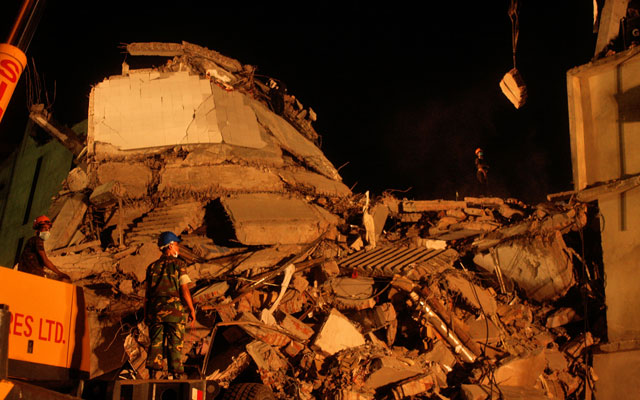Over the past two weeks, the world has looked on in shock and horror as the mangled bodies of Bangladeshi garment workers were pulled from the rubble of their collapsed factory. To date, over 600 people have been killed.
So far, much of the blame has been directed at the owner of the factory, who ignored the building’s obvious structural problems and continued with production despite orders to evacuate by local authorities. However, some blame must fall on the authorities themselves. The fact that the building was constructed illegally, with three stories added to a five-story building, squarely puts some of the blame on regulators and the hugely inefficient Bangladeshi bureaucracy.
According to the World Bank’s Doing Business Report, which measures the difficulty of opening and running a business throughout the world, Bangladesh ranks poorly in the “Dealing with Construction Permits” indicator. In 2013 Bangladesh ranked 83rd in the world in ease of obtaining a construction permit. Most troubling is the huge burden of obtaining a building permit from the City Development Authority’s bureaucracy. According to the World Bank, it takes more than 100 days and costs over $375—nearly three months of income for the average Bangladeshi.
Such excessive limits on business freedom encourage business and property owners to ignore or evade the law. High burdens to entry such as fees and red tape discourage individuals and businesses from obtaining the proper permits and registering their businesses and construction projects. If construction permitting had been easier, perhaps the owner of the collapsed factory would have applied for a permit, preventing the violations of the building code that led to the collapse.
If Bangladeshi authorities really want to prevent another tragedy like the one that happened at the Rana Plaza, they should embrace business and economic freedom. Through efficient regulations, Bangladesh could have saved the lives of some of Rana’s garment workers. Instead, it chose to pad the pockets of bureaucrats.




























